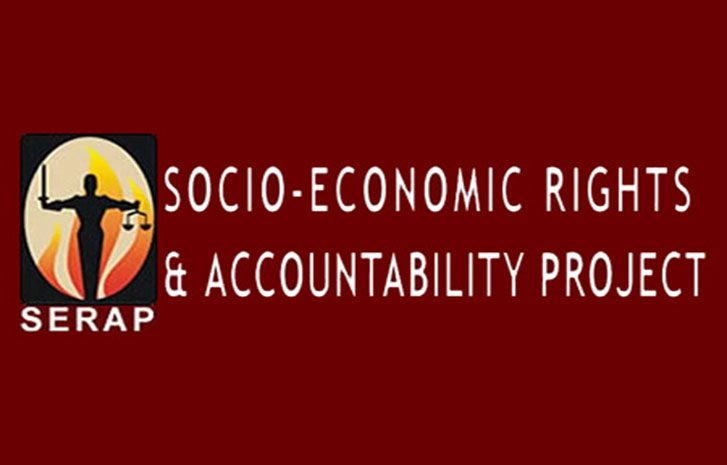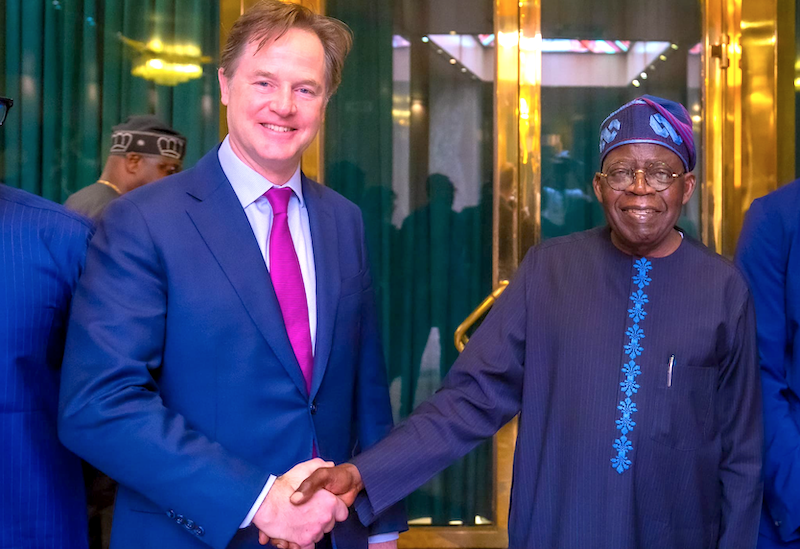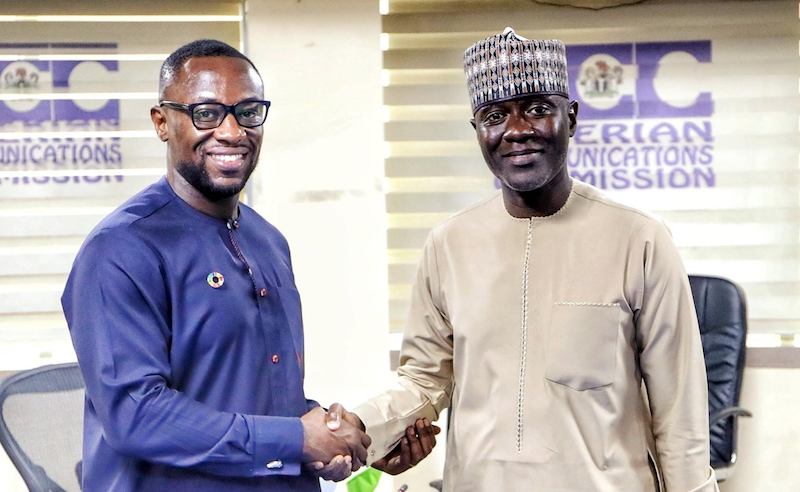The Nigeria Data Protection Commission (NDPC) has prayed the Federal High Court (FHC) in Abuja to dismiss, in its entirety, a suit filed by Meta Platforms, Inc. challenging the sanctions imposed on it.
The NDPC had, on Feb. 18, imposed both a remedial fee of 32,800,000 million US dollars and eight corrective orders against Meta Inc.
The American multinational technology company was alleged to have violated the fundamental privacy rights of its Nigerian users with respect to behavioural advertising on Facebook and Instagram.
Dissatisfied with the action, Meta Platforms Inc., in a motion ex-parte dated and filed on Feb. 26, dragged the regulatory agency to court as sole respondent.
In the motion ex-parte marked: FHC/ABJ/CS/355/2025 and moved by Fred Onuofia, SAN, on March 4, Justice James Omotosho granted one of the two orders sought.
The judge had granted leave to Meta to commence proceedings by way of judicial-review seeking, inter alia, an order of certiorari quashing the compliance and enforcement orders dated Feb. 18 issued by NDPC against the company, “and all other investigations, proceedings and actions taken by respondent against the applicant leading to the ‘Final Orders.’”
He, however, refused to grant Meta’s relief seeking a stay of the proceedings of all matters relating to the “Final Orders” issued by NDPC against it, pending the hearing and determination of the judicial review proceedings.
Instead, the judge made an order of accelerated hearing of the suit.
The firm, in its originating summons filed by the lead counsel, Prof. Gbolahan Elias, SAN, wants the court to determine whether NDPC’s investigative process and ensuing compliance and enforcement orders (the Final Orders) issued on Feb. 18 were invalid, null and void.
Meta, in its application dated and filed March 19, hinged the question on the allegation that the commission failed to provide it with adequate notice or an opportunity to be heard on alleged violations of the NDP Act prior to issuing the “Final Orders.”
Meta argued that such action violated its due process rights, including its right to fair hearing under Section 36 of the 1999 Constitution (as amended), among other reliefs.
But NDPC, in a preliminary objection to Meta’s suit, told the court that the suit is incompetent and the court lacks the jurisdiction to entertain same.
The regulatory agency, in its application dated April 10 and filed April 11 by its lawyer and the head, ALPHA & ROHI Law Firm, Adeola Adedipe, SAN, urged the court to either strike out or dismiss the case.
Adedipe, in two grounds of argument, submitted that the originating summons filed by the company is incompetent for non-compliance with the mandatory provision of Order 34 Rule 6(1) of the FHC (Civil Procedure) Rules, 2019.
Quoting the provision, the lawyer said: “No ground shall be relied upon or any relief sought at the hearing, except the grounds and reliefs sought in the statement.”
He also argued that the suit, as presently constituted, is grossly incompetent and academic, the reliefs sought therein, not being capable of activating the jurisdiction of the court.
“The suit is liable to be struck out/dismissed, in limine,” Adedipe argued.
The NDPC, in the affidavit attached to the preliminary objection, stated that by an ex-parte motion, Meta Inc. filed the case.
The commission said that the company had filed the suit, seeking leave to apply for judicial review against the decision of the respondent taken on Feb. 18.
It averred that there was a statement made pursuant to Order 34 of the Rules of the court, supporting the said application, containing the company’s two reliefs.
It said the court granted permission on March 4 for Meta to commence the proceeding, by way of judicial review.
According to the respondent, the originating summons filed by the plaintiff was commenced on 19th March, 2025, 15 days after leave was granted for the judicial review proceedings to be commenced.
NDPC, however, contended that the reliefs contained in the originating summons were completely different from the reliefs contained in the statement filed to support the ex-parte application for judicial review.
It said it believes that this error on the part of Meta was fundamental and “the defendant/applicant (NDPC) does not intend to waive its right to object, in this regard.”
“The defendant/applicant does not intend to waive its rights in challenging these fundamental errors, which are fatal to this proceeding and jurisdiction of the court.”
The commission said it would be in the interest of justice for its objection to be sustained.
Also, in a counter affidavit deposed to by NDPC ‘s staff, Osunleye Olatubosun, in opposition to the originating summons filed by Meta on March 19, he said the suit was brought under the judicial review procedure, primarily, to contest the decision of his office against Meta.
Olatubosun averred that in the NDPC ‘s decision, Meta was sanctioned after a protracted and thorough process of investigation.
He said the investigative power of the commission was activated by a petition written by an organisation, the Personal Data Protection Awareness Initiative (PDPAI).
The PDPAI had alleged that the company breached the data protection rights of users of Facebook and Instagram.
He averred that in the said petition, the plaintiff was alleged to be engaging in behavioural advertising without obtaining explicit consent of data subjects (users).
He said compelling evidence were provided in support of the petition, revealing Meta’s private policy showing that it conducted behavioural advertising, without obtaining consent from the data subjects.
The officer, in the counter affidavit dated and filed on April 30, described behavioural advertisement as “a special form of targeted advertising, where consumers are shown advertisements based on their behavioural data.”
He said it is a kind of advertising which collects and tracks individual sensitive information, without their knowledge or consent, to either share with third parties, or to decide specialised advertisements to be shown to the consumers.
Olatubosun said during investigation, NDPC drew the company’s attention to some very disturbing violations in this regard, especially as to non-consensual data processing activities.
He said these included the disclosure of sensitive personal data of minors relating to their sex lives; sensitive personal data of minors involving drug use; and sensitive personal data of minor pupils in school, involving erotic dancing.
He said it also revealed sponsored advertisements on gambling, involving the manipulated personal data of a female journalist on TVC; sponsored advertisement on gambling involving the manipulated personal data of a male journalist on Channels; and manipulated personal data of public figures, conspiring to commit a felony; explicit video of a woman delivering a child, with her genitals in full display, etc.
He said Meta was, therefore, found in breach of certain provisions of the Nigeria Data Protection (NDP) Act, and that its promotion of debasing images outside the expectation of concerned data subjects offended the principles of fairness, lawfulness, transparency, accountability and duty of care.
Besides, the officer said failure of the company to file a compliance audit with the commission for the year 2022, was a breach of the NDP Act.
He equally said that cross border transfer of data by Meta, contravened mandatory requirements under the NDP Act.
Olatubosun, who said that it was wrong for the plaintiff to process the data of its non-users of it platforms, added that Meta’s privacy policy violates relevant provisions of the NDP Act.
Against these development, the officer said the commission ordered the firm to, henceforth, “seek express consent of data subjects in Nigeria, where their personal data for behavioural advertising will be process.
“Carry out Data Processing Impact Assessment, taking into account the democratic development of Nigeria; update its privacy policy; cease and desist from transferring data out of Nigeria without approval of the commission, in line with the NDP Act.
“Create an appropriate icon link for educative videos, on the dangers of manipulative, unlawful and unfair data processing; put in place sufficient measures for the protection of data privacy on its platforms; and payment of 32, 800, 000 USD.”
Olatubosun said that the case lacks merit, praying the court to dismiss it.
Meanwhile, other reliefs sought by Meta in the main suit, include whether NDPC’s initiation of its investigation, based on a petition submitted by an organisation, rather than on a complaint filed by a “data subject” (as defined under Section 65 of NDPA), invalidates the investigation and the “Final Orders.”
It also prayed the court for an order of certiorari, quashing the investigation, all proceedings constituted thereby, as well as the ensuing “Final Orders” issued by the commission against it.
It equally sought an order of injunction restraining NDPC from enforcing or taking steps to enforce any or all of the orders and/or intimidating, harassing or coercing the applicant to pay the purported remedial fee as contained in the “Final Orders.”
However, Meta, in a motion on notice filed on April 23, sought to amend its statement attached to the ex-parte application, having seen through the notice of preliminary objection which was filed by Adeola Adedipe, SAN, on behalf of the commission.
Onuofia, SAN, while adopting all their processes, said the motion sought an order granting leave to the company to amend its statement pursuant to Order 34, Rule 3(2)(a) of the FHC rules.
He said it also sought an order deeming the amended statement, which had already been filed and served on NDPC as having been properly filed and served.
Giving grounds why his application should be grated, Onuofia said on March 4, the court heard and granted their motion ex-parte for leave.
He said, thereafter, Meta filed it originating summons on March 19.
The lawyer, however, told the judge that the firm sought to amend the wording of the reliefs and grounds set out in the statement to replicate the wording used in the originating summons.
He said the decision was to ensure efficiency and the full and fair hearing of the issues arising in the originating summons.
According to him, the proposed amended statement highlights the amendments that the applicant seeks permission to make to the statement.
Onuofia said the requested amendment would not cause any injustice to NDPC.
But Adedipe vehemently opposed Onuofia’s prayer seeking an amendment, urging the court to dismiss the application.
The senior counsel told the court that a counter affidavit was filed on May 2 in opposition to the motion.
He argued that the application was presumptuous and misleading.
He submitted that an amendment of a process is not as of right, but entirely at the discretion of the court, where such is practicable and lawful to do so.
Adedipe argued that the reliefs sought in a statement attached to a judicial review procedure cannot be amended, except the grounds for which the reliefs are premised.
He said the reliefs contained in the statement, are such that must be reproduced in the originating process filed, after leave had been granted for judicial review.
According to him, the applicant seeks to amend the reliefs set out in the unattached predicate “statement.”
“There can be no amendment to incompetent reliefs set out in the statement,” he said.
The lawyer argued that to concede that the reliefs contained in the predicate statement should be amended, was to make a mockery of the entire proceedings as the court had already granted the said reliefs contained in Exhibit A.
‘This is suggestive that the court already determined the substantive suit in favour of the applicant, ex-parte.
“The application before this court is not for ‘substitution’ of the reliefs, but amendment of orders or reliefs which had already been granted in the ex-parte application,” he argued.
He added that what Meta sought to do was to substitute the reliefs, under the guise of amendment.
He said the application contradicted Order 34(6)(1) of the FHC (Civil Procedure) Rules, 2019.
“It projects a lot of incongruity,” he said, arguing that there was no provision under the Rules to amend reliefs in the statement; but that only grounds of the reliefs can be amended.
Justice Omotosho adjourned the matter until Oct. 3 for consolidated ruling on the preliminary objection and motion to amend.
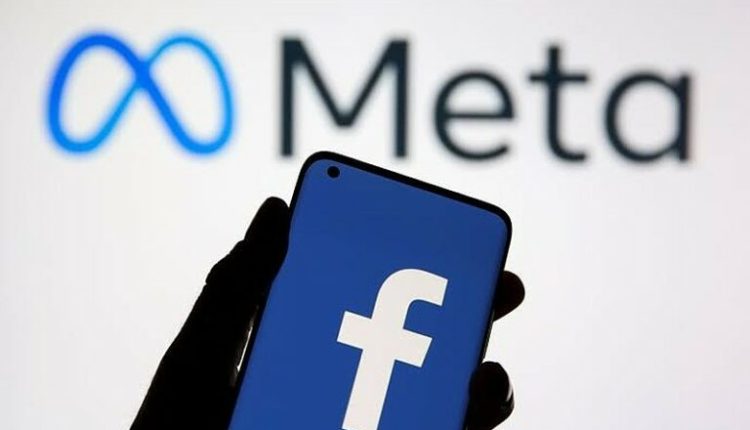
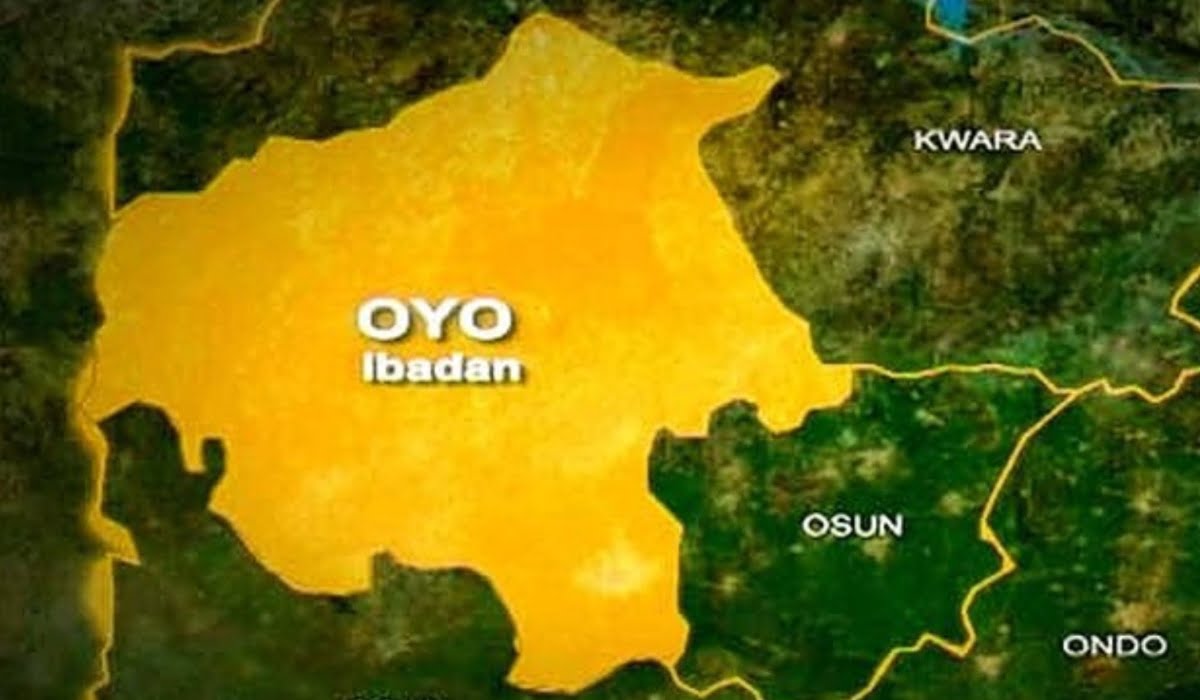
![Meta warns it may shut down Facebook, Instagram in Nigeria [SEE REASONS]](https://thenewsguru.ng/wp-content/uploads/2025/05/mm.jpg)
